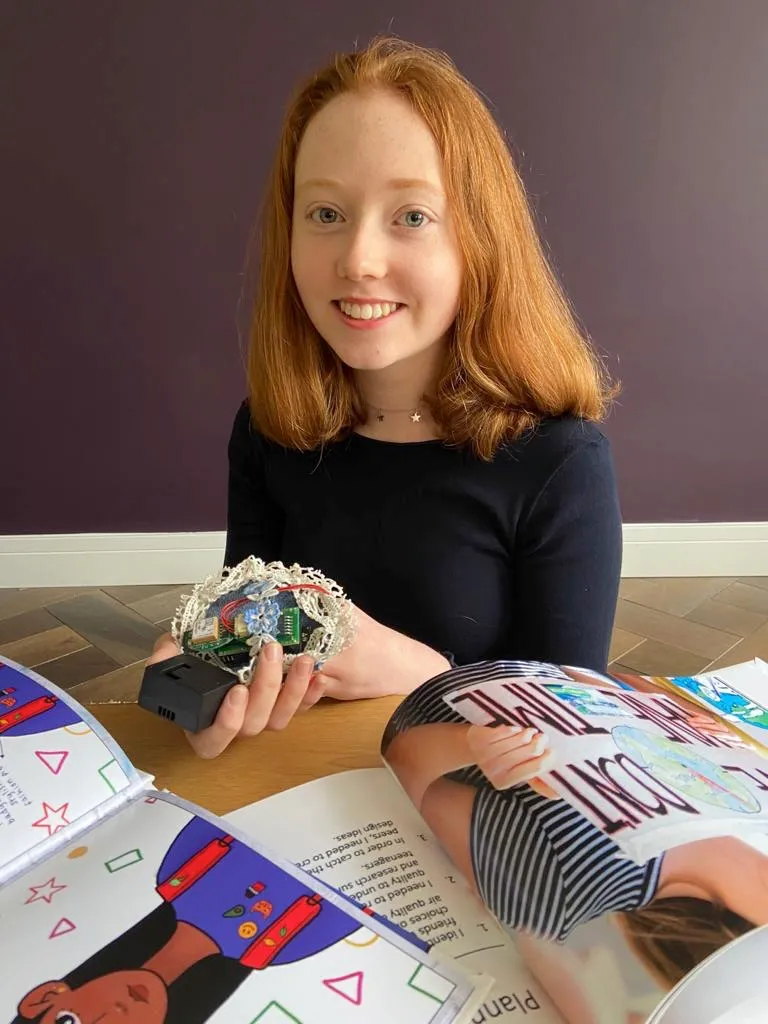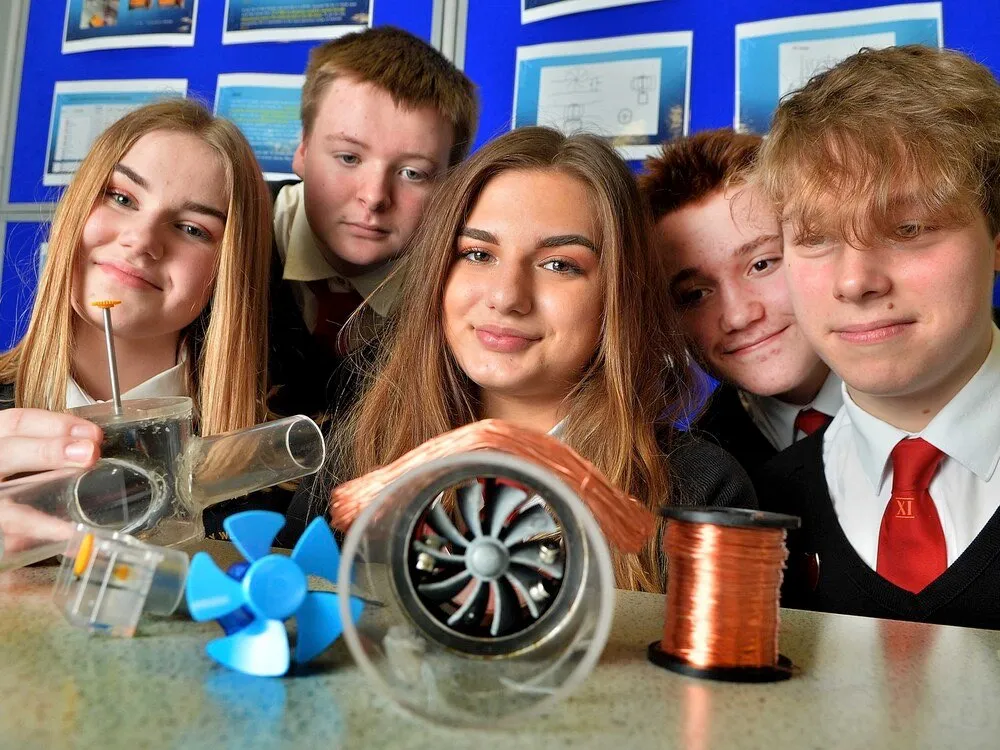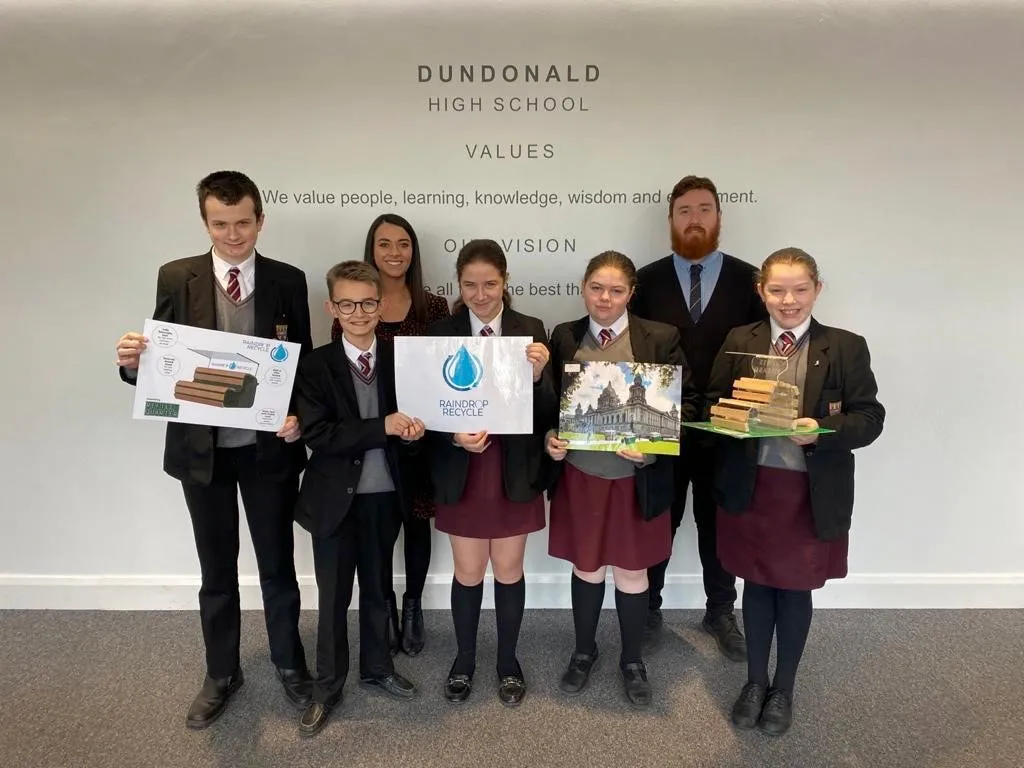Our children hold the key to determining a brighter future. Over the years, we’ve seen an emergence of notable teens spearheading the way and campaigning for issues they are passionate about.
Take Malala Yousafzai, for example, and her tireless campaigning to provide girls better access to education globally. More recently, Greta Thunberg took a central place on the world stage as the leading voice for climate change activism.
Students from all over the globe continue to create tangible solutions and ideas that address real-world problems, such as the US student who invented a possible way to detect pancreatic cancer, or the student in the UK who founded an organisation that successfully lobbied the government to fund free sanitary products in all English schools and colleges.
Read more about STEM:
- 15 super fun DIY science experiments for kids to try at home
- People with aphantasia are more likely to work in a STEM field
- Why aren't there more women in science?
This year, over 2,000 students across the UK participated in the Youth Industrial Strategy Competition, a national STEM competition organised by the British Science Association in partnership with the Department for Business, Energy and Industrial Strategy.
The competition challenged students to come up with practical projects that address four of the most pressing issues facing society as outlined by the UK Government: Clean Growth, Artificial Intelligence and Data, Ageing Society and the Future of Mobility.
Take a look at some of the most creative ideas that made it through to the finals:
1
Ava Garside's air quality sensor

First, is the winner of the junior category, 13-year old, Ava Garside from Leeds, who created an air quality sensor in response to the ‘Clean Growth’ category.
The device which you wear collects data and detects the air quality of wherever you are, helping to detect the cleanest and healthiest routes to work or school.
She is now working alongside scientists at the University of Manchester to develop the prototype further in order to fashion it into a small, stylish pin-badge.
2
Rushil Patel's AI processor
Rushil Patel, a student at St Wilfrid’s Catholic Comprehensive School in Crawley claimed the throne as winner of the senior category.
Rushil developed a project (using a handheld device and glasses) that uses offline artificial intelligence to accurately process a specific object or event in the world around the user, conveying limitless information in the most discrete way possible.
The young inventor hopes it can help people with autism not only identify, but also respond to, perceived emotions.
3
Llanwern High School's fish-grown lettuce
Taking innovation to the next level, a group of students from Llanwern High School were shortlisted for coming up with a project that uses fish to grow lettuce.
Responding to the challenge of Clean Growth, the students hoped to reduce the need for fertiliser and increase food production by using aquaponics and hydroponics.
This was noted as a possible solution to a side-effect of a potential No Deal Brexit, with a shortage in foodstuffs and fresh vegetables.
The system would be used within a fish tank, with the fish waste providing nutrients for the plants.
The scheme would reduce runoff into rivers and waterways with the same water being used, thereby increasing food production.
4
Personal Assistant Dementia app
One student from Lady Eleanor Holles in Hampton, responded to the challenge of ‘Ageing Society’ by designing a Personal Assistant Dementia (PAD) app that will allow patients with early stage dementia to remain independent for as long as possible.
The app uses a combination of smartphone calendars, medication alerts, mealtime prompts and home safety functions.
It would also have contacts, maps and a function to help users find or track missing items around the house, as well as access to emergency services.
5
Martian habitat to reduce overpopulation
Thinking outside the box (or globe!) year 12 students from Altrincham Grammar School for Girls in Greater Manchester, decided that their solution to the challenge of an ‘Ageing Society’, would be to create a habitat for humans on Mars in order to reduce the effects of overpopulation on Earth!
6
Mary Webb School and Science College's hydro-electric plumbing solution

Next, is a group of year 11 students from Mary Webb School and Science College in Shrewsbury, who won the intermediate category after designing a project responding to the challenge of Clean Growth.
The team made a hydro-electric plumbing solution designed to reduce energy wastage, carbon dioxide emissions and society's reliance on mass electricity generation.
Their product aims to make use of water flowing through the pipes in our homes, by fitting a device into household water pipes that acts as a mini hydroelectric generator.
7
Orkbrides Monorail
Addressing the Future of Mobility, year 9 students from St. Peter's Church of England Aided School were praised for designing a project that connects the Scottish islands known as the Outer Hebrides and the Orkney Islands to mainland Scotland through a monorail system known as Orkbrides Monorail.
8
Tonbridge Grammar School's dye sensitised solar cells
The entry from Tonbridge Grammar School in Kent involved exploring how different purple dyes made from a range of fruits affected the voltage output of a Grätzel cell, in response to the challenge of Clean Growth.
A Grätzel cell is a type of dye sensitised solar cell that is low cost and has little impact on the environment. The students were able to make the cells themselves through Pilkington Glass supplying slides of conducting glass.
Download the Science Focus Education Pack:
- Science Focus Education Pack: Robots
- Science Focus Education Pack: Climate change
- Science Focus Education Pack: Dinosaurs
- Science Focus Education Pack: Our Solar System
9
Royal Docks Academy's health shoes
Combatting an Ageing Society, year 10 students from Royal Docks Academy in Newham designed a project that uses vibrogen boots, a type of shoe inspired by power plates that are found in the gym to advance health and wellbeing.
10
Dundonald High School's rainwater-harvesting bench

And finally, a group of year 9 students from Dundonald High School in Northern Ireland addressed Clean Growth by creating a project that harvests rainwater within the inner-city that can then be filtered and used again for human consumption.
The product is multifunctional in that it also operates as a public bench.
The next generation of inventors
With thousands of participants, multiple finalists and three winners in this competition alone, there is tangible proof that children really do have the enthusiasm, skills and confidence to design and develop real solutions to the challenges we face.
They are our future, and if the future is set to be bright, then we need to continue encouraging them to question the world around them, think creatively and bring ideas to life in the hope of solving societal issues.
Who knows, the next Thomas Edison, Steve Jobs or Marie Curie could be your child, student or relative!
